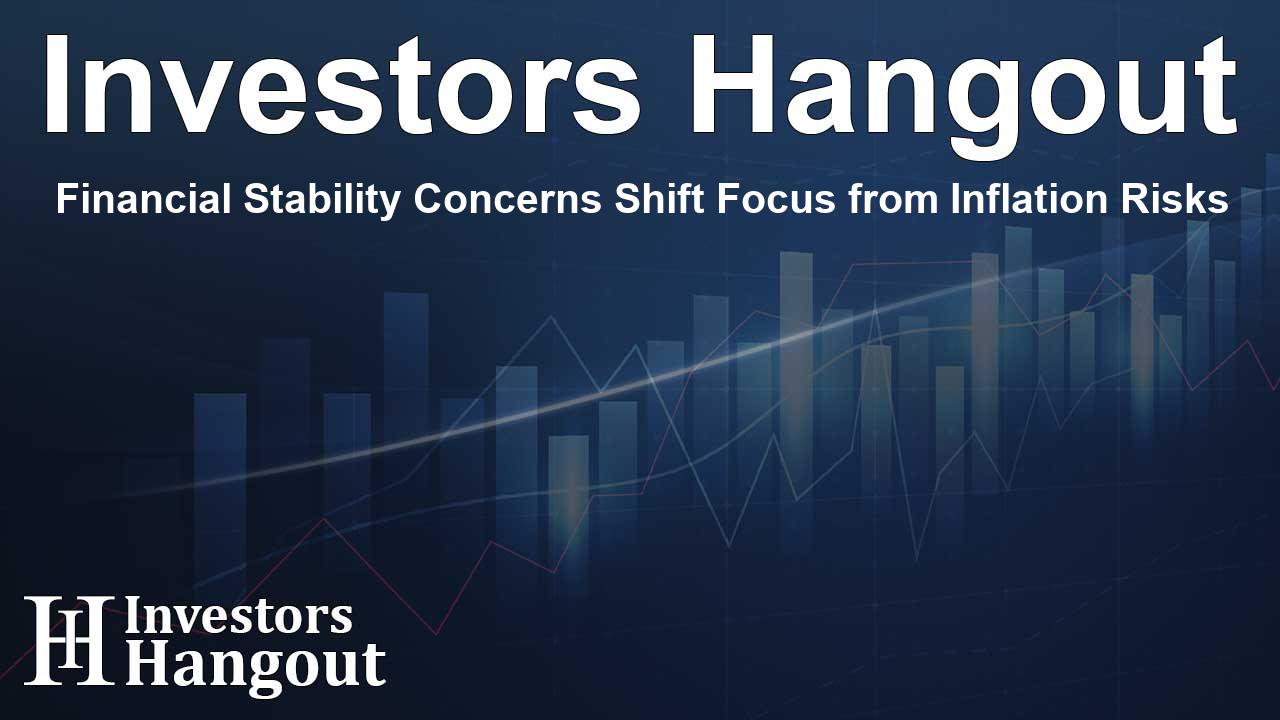Financial Stability Concerns Shift Focus from Inflation Risks

Financial Stability Concerns Shift Focus
The latest survey from the Federal Reserve reveals a pivotal shift in financial stability concerns. While high inflation was once a primary worry, financial professionals are now more anxious about increasing U.S. debt and potential trade wars. This transition reflects the ever-evolving landscape of economic worries and marks a significant departure from previous priorities.
Emerging Economic Risks
The survey indicates that concerns over U.S. fiscal debt sustainability have risen to the forefront. Increased issuance of Treasury bonds could potentially crowd out private investment and limit policy responses in challenging economic times. This tops the list of risks identified by the financial sector, showcasing a growing awareness of the implications of rising national debt.
Impact of Global Trade on Stability
Equally important are the apprehensions surrounding global trade dynamics. Some respondents emphasized that potential tariff barriers could provoke retaliatory measures that hinder global trade flows and subsequently fuel inflation once more. The intricate connection between trade policies and economic stability highlights a complex relationship that policymakers must navigate.
Market Reactions to Shifting Concerns
Recent market trends, particularly in the bond market, underscore these evolving concerns. Yields on notable Treasury securities, including the 10-year notes, have surged despite a reduction in the central bank's benchmark interest rate. This trend indicates how market sentiment is reacting to fears about both government debt and potential economic downturns.
Volatility in Interest Rates
A major contributor to the current financial climate is the heightened volatility in interest rates. This appears to stem from uncertainty in the economic outlook, which has heightened sensitivity to various economic indicators such as growth projections and inflationary pressures. As investors grapple with these uncertainties, the demand for reliable investment avenues has intensified.
Historical Context of Economic Concerns
Historically, persistent inflation coupled with stringent monetary policy had been a serious concern; however, in the most recent Fed survey, inflation risks have fallen to a less prominent position. This illustrates how quickly financial concerns can evolve and adapt based on the broader economic environment.
Trump's Economic Legacy
The survey was conducted during a critical transition period, highlighting issues likely to dominate future economic debates. Economists foresee that policies associated with the recent administration, particularly regarding tax adjustments and tariffs, may influence both inflationary trends and federal deficits, creating a delicate balance of stabilizing and destabilizing effects on the economy.
The State of Financial Stability
Despite the emerging risks, it is essential to recognize that the framework supporting financial institutions remains robust. The report noted that banks continue to be sound and resilient, backed by supervision from the central bank. However, certain asset classes, like stablecoins in the cryptocurrency space, have been identified as both growing and vulnerable, requiring careful monitoring as this sector expands.
Challenges Ahead
Overall, the recent Federal Reserve survey presents a complex yet insightful view of the financial landscape. While the focus has shifted from inflation concerns to more nuanced issues like debt and trade, the prediction of economic stability remains uncertain. Investors and policymakers alike will need to stay vigilant, adjusting their strategies to navigate these evolving economic challenges as they arise.
Frequently Asked Questions
1. What does the recent Fed survey indicate about inflation?
The latest Fed survey shows that inflation concerns have decreased, with focus shifting towards increasing U.S. debt and global trade issues as primary risks.
2. How have market behaviors changed according to the survey?
Recent market behaviors, particularly in the bond market, have shown rising yields on Treasury notes despite rate cuts, indicating investor anxiety surrounding debt and economic stability.
3. What risks are associated with U.S. debt according to financial professionals?
Financial professionals are concerned that rising U.S. debt could crowd out private investment and hinder appropriate policy responses in economic downturns.
4. How do global trade issues factor into financial stability?
Global trade risks are viewed as significant, with potential tariff barriers raising fears of protectionist policies that could negatively impact economic activity and inflation.
5. What is the outlook for financial stability amidst these concerns?
Despite the identified risks, the overall state of financial institutions remains solid, though certain sectors, such as cryptocurrency, present potential vulnerabilities that need to be monitored.
About The Author
Contact Caleb Price privately here. Or send an email with ATTN: Caleb Price as the subject to contact@investorshangout.com.
About Investors Hangout
Investors Hangout is a leading online stock forum for financial discussion and learning, offering a wide range of free tools and resources. It draws in traders of all levels, who exchange market knowledge, investigate trading tactics, and keep an eye on industry developments in real time. Featuring financial articles, stock message boards, quotes, charts, company profiles, and live news updates. Through cooperative learning and a wealth of informational resources, it helps users from novices creating their first portfolios to experts honing their techniques. Join Investors Hangout today: https://investorshangout.com/
The content of this article is based on factual, publicly available information and does not represent legal, financial, or investment advice. Investors Hangout does not offer financial advice, and the author is not a licensed financial advisor. Consult a qualified advisor before making any financial or investment decisions based on this article. This article should not be considered advice to purchase, sell, or hold any securities or other investments. If any of the material provided here is inaccurate, please contact us for corrections.
